Quick Stats (2025)
- School Type: Alternative school
- Source: National Center for Education Statistics (NCES), NJ Dept. of Education
School Overview
School Type
Grades Offered
n/a
Total Students (20-21)
13 students
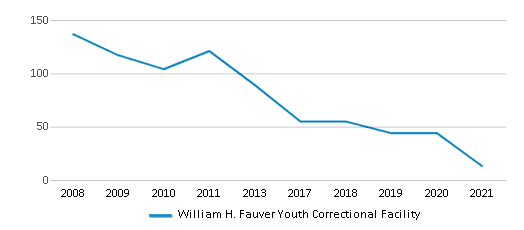
Total Classroom Teachers (11-12)
18 teachers
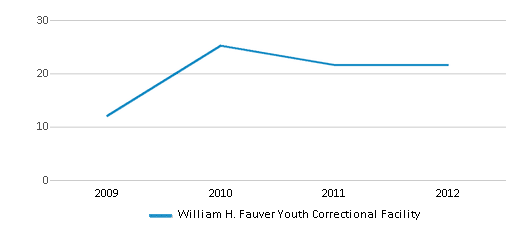
School Rankings
Student : Teacher Ratio
n/a
11:1
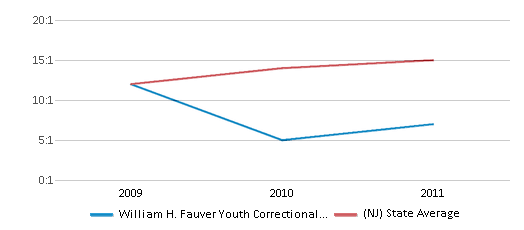
American Indian
(20-21)n/a
n/a
Asian
(20-21)n/a
10%
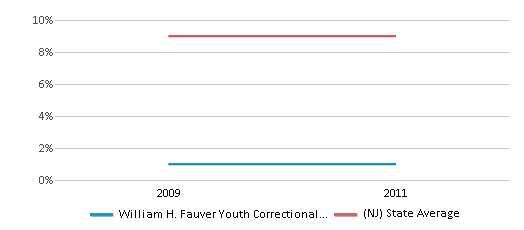
Hispanic
(20-21)31%
31%
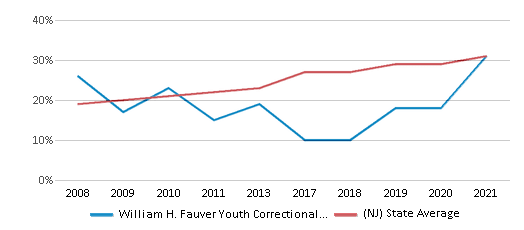
Black
(20-21)61%
15%
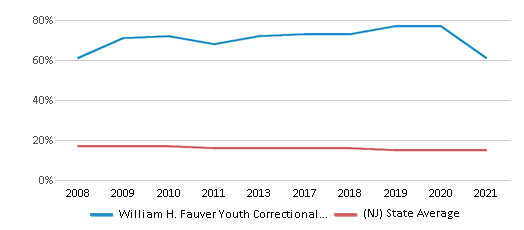
White
(20-21)8%
41%
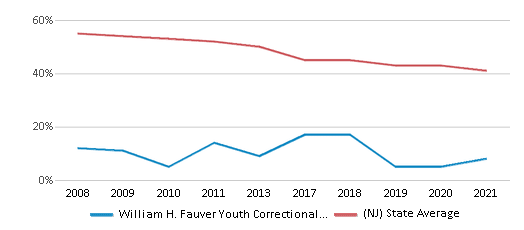
Hawaiian
(20-21)n/a
n/a
Two or more races
(20-21)n/a
3%
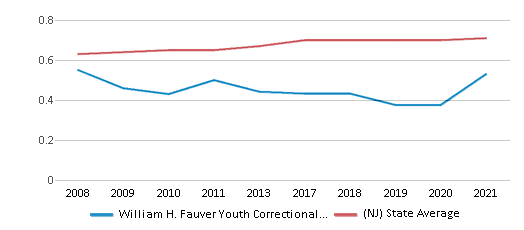
Eligible for Free Lunch (20-21)
77%
32%
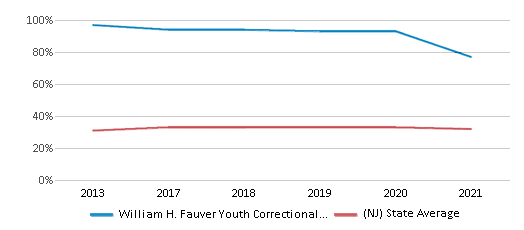
School Statewide Testing
School District Name
Source: National Center for Education Statistics (NCES), NJ Dept. of Education
Profile last updated: 02/09/2025
Frequently Asked Questions
What schools are William H. Fauver Youth Correctional Facility often compared to?
William H. Fauver Youth Correctional Facilityis often viewed alongside schools like Voorhees Rch, Voorhees High School by visitors of our site.
How many students attend William H. Fauver Youth Correctional Facility?
13 students attend William H. Fauver Youth Correctional Facility.
What is the racial composition of the student body?
61% of William H. Fauver Youth Correctional Facility students are Black, 31% of students are Hispanic, and 8% of students are White.
What school district is William H. Fauver Youth Correctional Facility part of?
William H. Fauver Youth Correctional Facility is part of Office Of Educational Services Department Of Corrections School District.
School Reviews
Review William H. Fauver Youth Correctional Facility. Reviews should be a few sentences in length. Please include any comments on:
- Quality of academic programs, teachers, and facilities
- Availability of music, art, sports and other extracurricular activities
Recent Articles

What Is A Charter School?
Explore the world of charter schools in this comprehensive guide. Learn about their history, how they operate, and the pros and cons of this educational innovation. Discover key facts about charter schools, including admission policies, demographics, and funding, as well as what to look for when considering a charter school for your child.

10 Reasons Why High School Sports Benefit Students
Discover the 10 compelling reasons why high school sports are beneficial for students. This comprehensive article explores how athletics enhance academic performance, foster personal growth, and develop crucial life skills. From improved fitness and time management to leadership development and community representation, learn why participating in high school sports can be a game-changer for students' overall success and well-being.

February 05, 2025
Understanding the U.S. Department of Education: Structure, Impact, and EvolutionWe explore how the Department of Education shapes American education, from its cabinet-level leadership to its impact on millions of students, written for general audiences seeking clarity on this vital institution.





